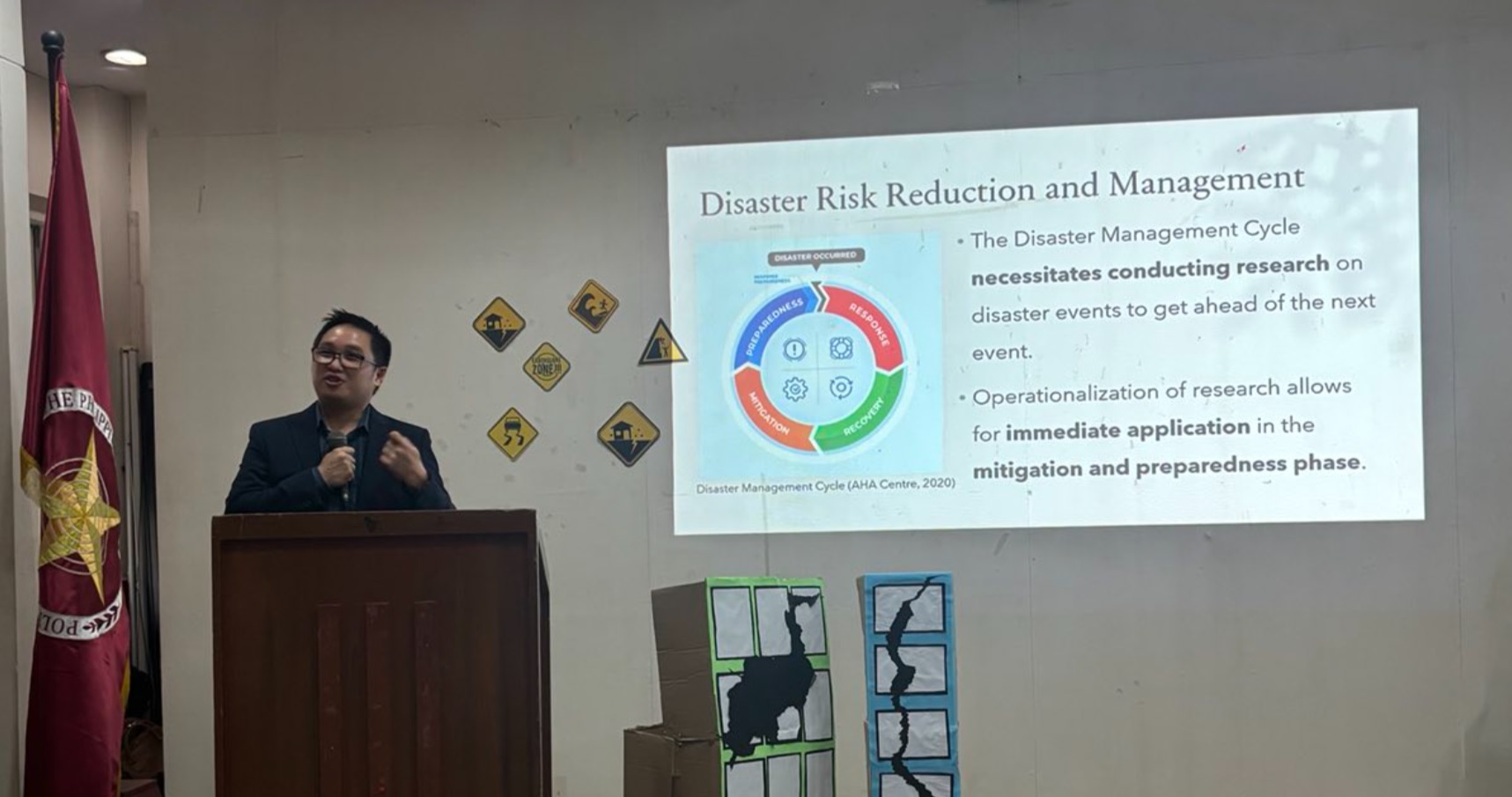In line with the 2025 Communication Research Month, the Polytechnic University of the Philippines Circle of Research Enthusiasts (PUP CORE) successfully hosted its flagship advocacy event titled RE:Search and Rescue: Solidifying Disaster Risk Management through Research last May 7, 2025. The event gathered communication research students and disaster management practitioners to deepen their understanding of the essential role of research in Disaster Risk Reduction and Management (DRRM).
Mr. Richard L. Ybañez, Chief Science Research Specialist at the UP Resilience Institute’s Education Division, delivered one of the event’s highlight presentations on the topic “The Role of Research in Disaster Risk Management.” He emphasized the necessity of conducting operational research as a proactive tool to anticipate and potentially prevent disasters. Additionally, he underscored how such research not only informs long-term policies but also enables immediate, life-saving interventions.

Using Project NOAH (Nationwide Operational Assessment of Hazards) and the UP NOAH website as a case study, Mr. Ybañez illustrated how real-time data and research products are mobilized to support early warning systems and disaster response efforts across the country. The integration of science, data, and technology in this platform offers a clear example of how operational research can bridge the gap between academic study and direct action on the ground.
Moreover, Mr. Ybañez addressed the growing need to understand complex hazard interrelationships, citing the Abuyog, Leyte landslide-generated tsunami as a recent example. He explained how this unexpected hazard cascade highlights the limitations of traditional models and the urgent requirement for research that captures the evolving dynamics of natural hazards.
During the interactive Q&A session, Mr. Ybañez highlighted the UP NOAH Center’s commitment to open data, emphasizing that all hazard maps and resources are freely downloadable via their platform. He also advised students to “do good science to save lives” when asked how to conduct meaningful research in the field.
Also brought to the table were discussions on land subsidence in Metro Manila, and public confusion between tsunami and storm surge warnings, particularly following Typhoon Ketsana in 2013— issues that Mr. Ybañez, along with UP NOAH Center Supervising Science Research Specialist Audrei Anne Ybañez, noted are best addressed through consistent science communication and capacity-building efforts.

PUP CORE’s advocacy event not only celebrated academic inquiry but also highlighted its role in shaping a safer, more prepared Philippines.
